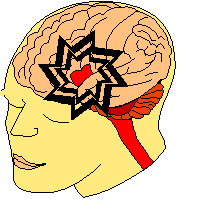
 Of course, throughout history there have been things that were generated, as it were, which were yet drastically different from what we normally think of today as physical. A case in point is the Mind. I certainly would like to say—in part because it does not seem awkward to say it—that my Mind exists, although I am admittedly hardpressed to say how or where. At the same time, if I say that my Mind exists, it seems that I am also commited to saying that my Mind is generated and thus physical (in the original sense of the word). But my Mind certainly is not physical in the contemporary sense of the word—the sense in which physical means material. Our Minds undeniably have a certain invariance—mine is the same Mind that was there throughout the "continuum" of expericence that gives me my earliest memories, and this inspite of all the transformations my Mind has undergone during my subsequent life. So the Mind, though generated and yet different in kind from material entities—such as my brain—is still an entity. And along with all the other physical things in the World we must also admit this other kind of "thing"—the Mind. But what are we to call its kind? Is it a spiritual thing? Considering the origin of this word—'spiro' means 'wind', itself an invisible and yet efficacious physical entity—this is perhaps not a bad choice. Unfortunately, the history of the word 'spirit', not only in religion but in philosophy as well (recall Hegel, e.g.), weighs it down with too much unwanted baggage. How about saying that the Mind is a mental entity? Well, perhaps; but what exaclty does it mean to resort to the obvious redundancy involved in saying that the Mind is mental? Apparently, the Mind presents special problems for philosophy, and until we learn much more about the brain itself, the physical "substance" of the Mind, the problems are likely to persist. Of course, throughout history there have been things that were generated, as it were, which were yet drastically different from what we normally think of today as physical. A case in point is the Mind. I certainly would like to say—in part because it does not seem awkward to say it—that my Mind exists, although I am admittedly hardpressed to say how or where. At the same time, if I say that my Mind exists, it seems that I am also commited to saying that my Mind is generated and thus physical (in the original sense of the word). But my Mind certainly is not physical in the contemporary sense of the word—the sense in which physical means material. Our Minds undeniably have a certain invariance—mine is the same Mind that was there throughout the "continuum" of expericence that gives me my earliest memories, and this inspite of all the transformations my Mind has undergone during my subsequent life. So the Mind, though generated and yet different in kind from material entities—such as my brain—is still an entity. And along with all the other physical things in the World we must also admit this other kind of "thing"—the Mind. But what are we to call its kind? Is it a spiritual thing? Considering the origin of this word—'spiro' means 'wind', itself an invisible and yet efficacious physical entity—this is perhaps not a bad choice. Unfortunately, the history of the word 'spirit', not only in religion but in philosophy as well (recall Hegel, e.g.), weighs it down with too much unwanted baggage. How about saying that the Mind is a mental entity? Well, perhaps; but what exaclty does it mean to resort to the obvious redundancy involved in saying that the Mind is mental? Apparently, the Mind presents special problems for philosophy, and until we learn much more about the brain itself, the physical "substance" of the Mind, the problems are likely to persist.
|

